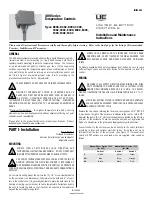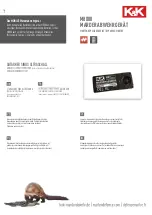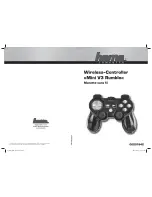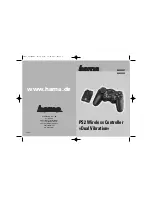
Mounting, wiring and demounting
Wieland Electric GmbH | BA001269 | 09/2021 (Rev. A)
21
5
MOUNTING, WIRING AND DEMOUNTING
5.1
Installation guidelines
General data
The installation guidelines contain information about the interference free deployment of a PLC sys-
tem. There is the description of the ways, interference may occur in your PLC, how you can make
sure the electromagnetic compatibility (EMC), and how you manage the isolation.
What does EMC mean?
Electromagnetic compatibility (EMC) means the ability of an electrical device, to function error free
in an electromagnetic environment without being interfered respectively without interfering the en-
vironment.
The Wieland Electric components are developed for the deployment in industrial environments and
meets high demands on the EMC. Nevertheless you should project an EMC planning before installing
the components and take conceivable interference causes into account.
Possible interference causes
Electromagnetic interferences may interfere your control via different ways:
•
Electromagnetic fields (RF coupling)
•
Magnetic fields with power frequency
•
Bus system
•
Power supply
•
Yellow/green conductor
Depending on the spreading medium (lead bound or lead free) and the distance to the interference
cause, interferences to your control occur by means of different coupling mechanisms.
There are:
•
galvanic coupling
•
capacitive coupling
•
inductive coupling
•
radiant coupling
Basic rules for EMC
In the most times it is enough to take care of some elementary rules to guarantee the EMC. Please
regard the following basic rules when installing your PLC.
Take care of a correct area-wide grounding of the inactive metal parts when installing your compo-
nents.
•
Install a central connection between the ground and the protected earth conductor sys-
tem.
•
Connect all inactive metal extensive and impedance-low.
•
Please try not to use aluminum parts. Aluminum is easily oxidizing and is therefore less
suitable for grounding.
When cabling, take care of the correct line routing.
•
Organize your cabling in line groups (high voltage, current supply, signal and data lines).
•
Always lay your high voltage lines and signal respectively data lines in separate channels or
bundles.
•
Route the signal and data lines as near as possible beside ground areas (e.g. suspension
bars, metal rails, tin cabinet).
















































